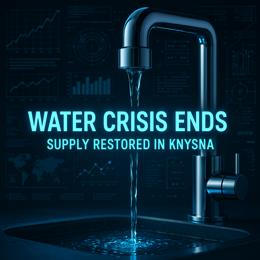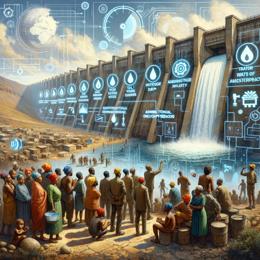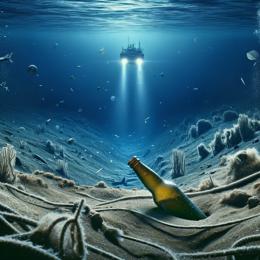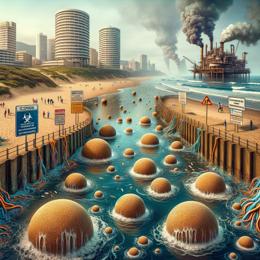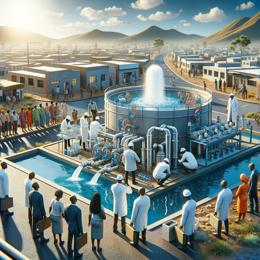Image created by AI
Joburg's Water Woes: Deeper Cuts and Throttling as Crisis Escalates
Johannesburg's deepening water crisis has compelled the city to enforce stricter water restrictions, setting the stage for a challenging period ahead for its residents. Johannesburg Water has issued a stark notification of water throttling and pressure controls, likely to convert the flow into a mere trickle for many.
A report from the Constitutional Court underscored the gravity of the situation, as it cited an unreliable water supply disrupting the administration of justice. The city's water system, pushed beyond its lifespan, is now a site for routine cutoffs, profoundly affecting the daily lives of Johannesburg residents.
Capital investments have dwindled, making way for consumption spending, eroding the capacity for essential maintenance and new infrastructure developments. Since 1994, the city has not adequately invested in the renovation of its water systems, resulting in frequent breakdowns in regions like Midrand, Sandton, and Coronationville.
The communication from Johannesburg Water to city manager Floyd Brink detailed the necessity for introducing Level 2 and 3 water restrictions as announced by Deputy President Paul Mashatile. The system, strained by the city's inability to repair and maintain 44% of its 685 pressure-reducing valves, is in dire need of an overhaul - only 430km of piping has been replaced since 2016, and much more is urgently needed.
The city's financial health has darkened the picture further. Once Finance MMC, and now the mayor, Dada Morero, highlighted Johannesburg's dire need for R4.3 billion monthly for essential operations - a sum far removed from the city's current fiscal reality.
Despite these challenges, Johannesburg Water's MD, Ntshavheni Mukwevho, remains focused on repairing and maintaining the system. This includes night throttling - reducing water pressure during low-demand periods to conserve the supply and prevent wastage through leaks.
Data reveal that nearly half of Johannesburg’s water supply is categorized as "non-revenue" water - essentially, water that is either lost due to leaks or not billed. The Gauteng province, including Johannesburg, has reached a critical juncture as decades of under-investment and patchy maintenance come to a head, demanding bold action and immediate relief measures.
The World Bank, alongside national government, is poised to intervene with a comprehensive public education campaign aimed at water conservation. Linking Gauteng's water security to a broader national plan demonstrates the need for collaborated efforts to ensure sustainable water provision.
Day-to-day life in Johannesburg has become a battle with water. Residents are adapting to an unstable supply by investing in boreholes, JoJo tanks, and other self-sufficient water sources. However, this shift brings financial burdens and a continuous sense of uncertainty, driving home the critical nature of the enduring crisis.

